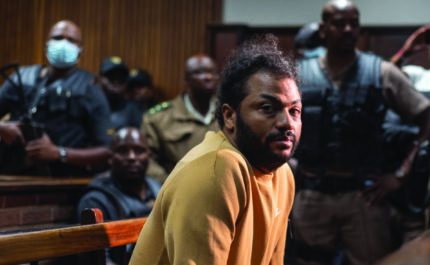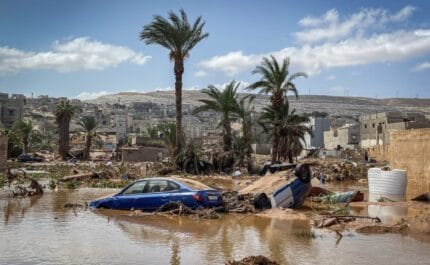The home front
Belgium has been Europe’s biggest per capita contributor of jihadis fighting in Syria. As news broke of the death of another Belgian militant in Syria in August 2015, Susan Schulman reports on the mothers whose sons went to fight – and who have come together to help others whose children are planning to flee
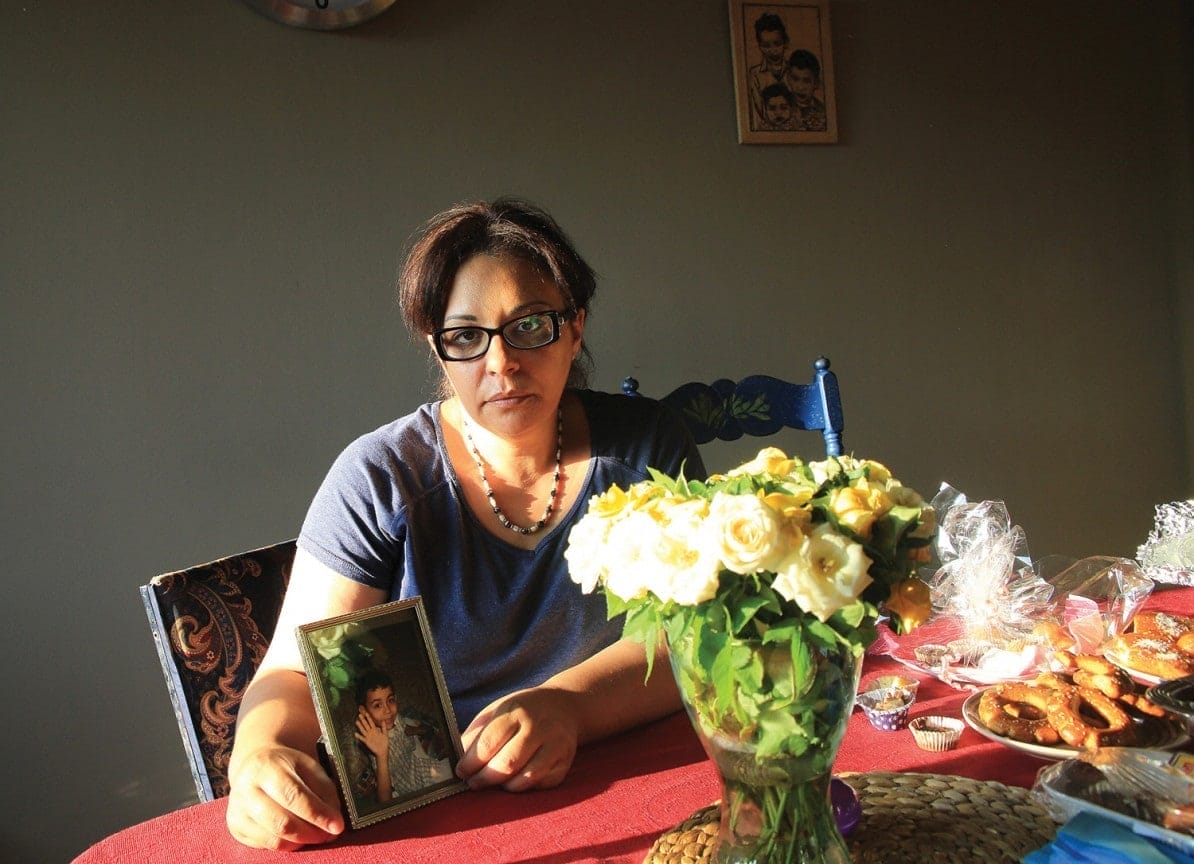
19th August 2015 (Taken from: #20)
When I first met Véronique in a busy cafe in the St Gilles neighbourhood of Brussels in late May 2015, she was anxious and distracted. She’d had no news of her son, Sami, for more than a month. “I try and go online and find him on Skype,” she said, tears filling her eyes. “I don’t know if he is dead or alive.”
It had been like this since November 2012, when Sami, then 23, turned off his phone and disappeared. At the time, Véronique was in Germany visiting relatives. Surprised to get the disconnect tone, she called the mother of a friend of Sami’s, who reassured her that he was there playing video games with her son.
But he wasn’t. Sami had left for Syria. When she eventually found out the truth, Véronique’s world fell apart.
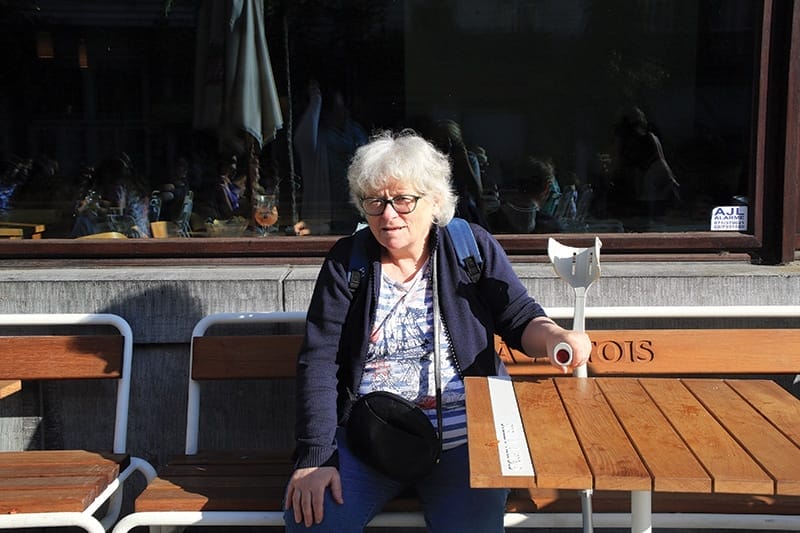
Véronique, whose son Sami left for Syria to become a jihadi
When Sami left in 2012, he was on the leading edge of a wave that has seen an estimated 20,000 foreign fighters from 90 different nations journey to Syria and Iraq. Of these, around 4,000 are from Western nations, the great majority from Europe.
The departures leave a trail of devastation in their wake. Most of the mothers, like Véronique, will have had no idea of their children’s plans in advance. Most will not approve. The impact on their lives is catastrophic. Already overwhelmed by grief, shock and despair, families who are struggling to cope find themselves thrust into the unsympathetic arms of the security services. Looking for help, they are instead cast as “mothers of terrorists”, stigmatised and blamed.
The repercussions ripple through communities, schools and relationships, destabilising every aspect of life and leaving the mothers isolated and with nowhere to turn – except to one another.
Small groups of mothers have now started to band together to share support and solidarity. Some of the most determined such groups are in Belgium, the tiny country which has contributed the most foreign fighters per capita of any country in Europe.
“He went off with the others”
Véronique and her former husband are both Roman Catholics and brought Sami and his younger sister Jonelle up in the church. Sami loved it. At seven, he asked to be baptised. “Sami was always a religious boy… I think if he had stayed in the church, he would have become a priest,” Véronique told me.
Not long after Sami was baptised, the Brussels area the family lived in, Laeken, started to change. New immigrant families moved in and Sami became acquainted with Islam. At 14, he wanted to convert to Islam, leave the Catholic school he had gone to all his life and attend the local state school.
His parents divorced and, not wanting to leave the neighbourhood, Sami stayed with his father. But his father refused to accept his conversion and the atmosphere at home was fraught. The Muslim family across the street took him under their wing, and he began spending a lot of time at their house.
The video of Sami was broadcast on Belgian television. ‘The whole of Belgium saw my son. I felt so terrible. I cried for months’”
Always a highly intelligent and motivated student, Sami studied the Koran, learned Arabic and worked at a food kitchen. Véronique accepted her son’s choice to be a Muslim and was proud of his good works. And then he disappeared. His desperate parents went to the police and the security service. But neither agency would act. “They knew people were leaving for Syria,” Véronique told me. “But they said nothing.”
At the time of Sami’s disappearance, Véronique was teaching literacy to Moroccan women, many of whom were mothers of Sami’s friends. “Soon after he had left, a woman in my class said ‘Oh, your son Sami is such a sweet boy’,” Véronique recounted. “I said, ‘He’s not here any more.’”
She was not prepared for the response. “I know. He went off with the others,” the woman replied, matter-of-factly. The shock was overwhelming. “Another woman told me she had seen him and had watched the bus leave the mosque in the middle of the night with [Sami and] the others…” Véronique paused and drew a sharp breath. “Everyone in the quartier knew except me.”
Realising that the women were her only hope of getting information, Véronique hid her grief and continued teaching. Later that November Sami phoned his mother, and said he was in Turkey building hospitals.
It wasn’t true. In December, the security service brought Véronique into their offices and showed her a video. There was her son holding a Kalashnikov amongst other jihadis in Syria. He had been at a training camp. “My knees were like cotton when I saw this. I felt so bad when I saw the Kalashnikov. To this day, I am [still] angry,” Véronique told me. The video made its way onto YouTube and was later broadcast on Belgian television. “The whole of Belgium saw my son. I felt so terrible. I cried for months.”
Slowly, Véronique began to understand that nothing in Sami’s world had been what it seemed. “When he came to me and said he was helping people,” Véronique explained, “I thought it was really good. But what I didn’t know was that he was doing it with Jean-Louis Denis, who was brainwashing him.” The Arabic lessons, studying the Koran: it had all been preparation for travelling to Syria.
In early 2013, Denis, nicknamed “Le Soumis” (“the one who has submitted”) was arrested for recruiting jihadists and is currently awaiting trial, charged with being the leader of a terrorist organisation.
Sami had left for Syria with two close childhood friends. Today he is the only one who is still alive. “He has buried his own friends whom he had known since he was three years old,” said Véronique.
The video broadcast remains the only image of Sami that has been seen publicly. His mother, desperate to stay in touch with him and living in constant hope of eventually being re-united, has agreed to his demand to not show any pictures of him to anyone.
In 2013, Véronique co-founded a group for people whose children had left for Syria or seemed in danger of doing so, Les Parents Concernés (Concerned Parents).
“I wanted to do something good so this doesn’t happen to someone else,” she explained. “I wanted to turn the negative into the positive.” Véronique paid the rent on a room where the parents could meet. First there were two, then three. Now there are about 20, most of whom are mothers. It has become an oasis of support.
The “dark side of globalisation”
In April 2015, the UN Security Council heard testimony from experts on youth radicalisation including Peter Neumann, director of the International Centre for the Study of Radicalisation at King’s College London and anthropologist Scott Atran.
The Council’s representatives wanted to understand why thousands of young people have been leaving their homes without a word of warning in order to join what Neumann, in his testimony, described bluntly as “a totalitarian organization that chops off people’s heads and burns them alive.” They also wanted to know why, given the widespread reporting on the horrors of the self-declared Islamic State and the tough travel measures adopted by many countries, young people are still travelling to Syria to fight as jihadis.
Prior to the rise of Isis, it was possible for leavers to believe they were going on a noble humanitarian mission to counter the brutality of the Assad regime. But while Isis’s well-publicised savagery has put paid to any such potential illusions, it has not arrested the outbound flow or, it would seem, the allure. Indeed, a poll conducted by ICM Research in the summer of 2014 found that “more than one in four French youth – of all creeds – between the ages of 18 and 24 had a favourable attitude towards Isis,” Atran noted in his testimony.
While it is not possible to neatly categorise those leaving, except to note that the great majority will be between 18 and 29 years old, what they do have in common, according to Neumann, is a feeling of exclusion. “A sense of exclusion is not what causes it,” he said, “but it is the precondition for everything that follows.” With the social indicators throughout Europe tipped heavily against Muslim communities, there is much room for this sense of exclusion.
The Council of Europe’s reports on Belgium from 2012 and 2014 list discrimination against Belgium’s Muslims across the spectrum, from employment to housing. Isis resonates with those who feel excluded because “it makes sense of people’s state of mind… It turns a grievance into a cause… It is weirdly empowering,” said Neumann. In these circumstances, the Isis proposition of building a perfect Islamic utopia can become a powerful magnet. From there, its savagery becomes acceptable. “Once a person is convinced of the mission’s moral virtue, then spectacular violence is not a turn-off, but sublime and empowering,” noted Atran.
Atran has also described Isis as “the world’s most dynamic counter-cultural movement”, an organisation which offers a strong identity to its young recruits. “Violent extremism represents not the resurgence of traditional cultures, but their collapse, as young people unmoored from millennial traditions flail about in search of a social identity that gives personal significance and glory,” he said. “That is the dark side of globalisation. They radicalise to find a firm identity in a flattened world: where vertical lines of communication between the generations are replaced by horizontal peer-to-peer attachments that can span the globe.”
“By contrast, our own research shows that even among native Western youth, ideals of liberal democracy no longer elicit willingness to make costly sacrifices for their defence,” said Atran.
“If you come, come to fight”
Saliha Ben Ali saw the struggle for identity unfold in her own son, Sabri.
“It used to be drugs. Now it is jihad,” she told me. “Isis says ‘Here are the keys to your future’. They give you a place in life – and the sentiment of sacrifice, of ‘I do this for my family’.”
It was suffocatingly hot at the beginning of August 2013 in Vilvoorde, the suburb of Brussels where Sabri, 19, lived with his family, but by the 12th, when he slipped off into the night, the mercury had dropped to unseasonable lows. Less than four months later Sabri, known by the nom de guerre Abu Turab, was dead.
Photographs abound of a smiling Sabri in the family’s spacious, beautiful art nouveau apartment in Brussels’ Schaerbeek district. In frames and twirling gently from a photo mobile suspended from the shade of a floor lamp, his presence continues, undimmed by death.
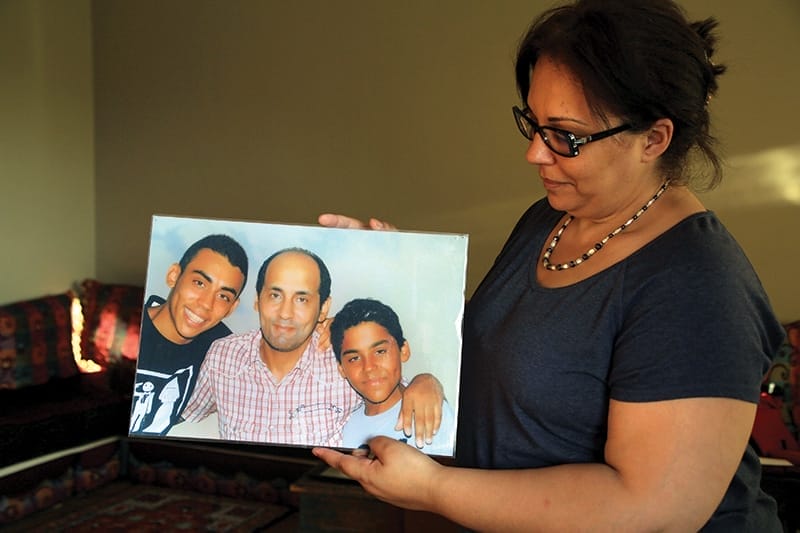
Saliha Ben Ali, whose son Sabri left their Brussels home for Syria in August 2013
Saliha is the daughter of a Tunisian father and Moroccan mother. A social worker, she emanates warmth, intelligence and determination, but her brown eyes were filled with sadness and brimmed with tears as we talked. Her son Sabri had always been a good student, excelling both academically and on the sports field, and was held in high esteem by their close-knit Moroccan Muslim community.
But he didn’t like his hotel studies programme and at 18, much to his mother’s disapproval, he quit school, planning on working until the following September when he would resume his studies elsewhere. Despite being fluent in English, Flemish, French and Arabic, the only work he could find was collecting rubbish. He felt humiliated and devalued.
In early 2013, the horrors of the war in Syria were increasingly dominating the headlines. Sabri was deeply troubled – how could the world just look away and fail to intervene? “He posed a lot of questions about injustice,” Saliha explained. “He would look at the newspaper and ask me why these things go on. He’d ask what he could do.” In May 2013, he brought a friend home. Saliha was stunned. This was a boy she had known “forever”, but the 19-year-old Mohammed had changed completely. “Now he had a big beard and he was wearing a Pakistani outfit,” she said. “He wouldn’t even look me in the eye.” It was the turning point.
Sabri began going to the same mosque as Mohammed. Soon, he had stopped playing sports, stopped work because it prevented him praying at the designated prayer hours and brought him into contact with women, and turned against the idea of democracy. Saliha, terrified that she could see her son “disappearing”, tried reasoning with him.
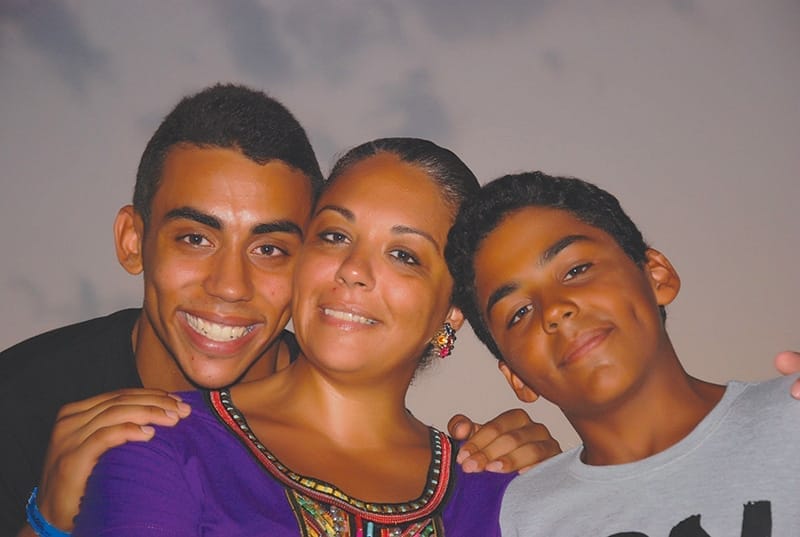
Saliha and her sons, with Sabri on the left
He would have none of it, refusing to engage in conversation. “According to him, we didn’t know anything – we are not ‘real’ Muslims.” At last, in August, the old Sabri reappeared. He shaved his beard and told his mother he was going to visit his grandparents and then enroll in school the next day. A huge wave of relief swept over Saliha. But it was all a lie. Sabri was leaving for Syria. “The first time he called and I spoke to him, I was so angry,” Saliha remembered. “I told him I would come there and get him. He said, ‘If you come, come to fight. Otherwise the group will behead you’.” To his mother, he sounded “like a robot”.
On 8th November 2013, Sabri contacted his mother on Facebook and asked her to send him money so he could get married. “A lot of them out there get their parents to send money, but I refused.” Tears welled in her eyes. “He said that would be the last time he would talk to me.” It was.
Saliha showed me some of the photographs of dead ‘martyred’ children sent to their families by their jihadist comrades. Heads with sunken eyes and gaping mouths protrude from bodies swaddled in coarse grey blankets. Saliha didn’t receive a photograph, but her husband did receive a phone call, saying that their son had been killed. Saliha went to Sabri’s friends in Vilvoorde in search of answers. “They said it was a car bombing. They said there was no picture as Sabri was blown into a thousand pieces.” Tears spilled down her cheeks.
In 2014, the family left Vilvoorde, the Flemish-speaking suburb of Brussels where they had lived for 25 years, and which has become a notorious exporter of jihadis. “There, what my son did [was seen] as normal,” Saliha explained. “I feared for my other children.”
The fallout
On the day I departed for Vilvoorde, a train driver’s strike in Brussels had left many passengers stranded and the rest confused. My uncertainty must have been evident as I boarded a carriage at Midi-Zuid station. A young man with clear blue eyes and a radiant smile caught my eye and in excellent, accented English, confirmed that I was on the right train.
We started chatting. He was 23, a Syrian refugee from Aleppo. He’d arrived on a flight 18 months earlier with his mother and laughed as he told me that he had had no idea that there was a place in the world called Belgium until the plane landed – the people smuggler they’d paid had promised to get them to Germany. And as the smuggler had taken back the passports he’d given them after they boarded, they had landed in an unknown country with no documents.
Nonetheless, he told me, the Belgian authorities couldn’t have been nicer. They were given housing, a stipend to live on and he has been able resume college. This beautiful Syrian youth, with his sparkling eyes and Tintin coif couldn’t have been more grateful. He was Belgium’s number one fan. When I asked him what he thought about the Belgian youth who were headed to the country he had fled, he was unequivocal. “They are crazy, just crazy!” he bellowed.
They said it was a car bombing. They said there was no picture as Sabri was blown into a thousand pieces”
Fatima Lamarti has seen all too many of these “crazy” youth leave her town, never to return. This warm and ebullient woman of Moroccan descent is the alderman for social affairs and equal opportunities for the town of Vilvoorde. She was born and raised in Vilvoorde and has worked in its local government for 15 years. She knows the place and its people like the back of her hand.
“I can never forget that Sunday, when Saliha’s husband phoned and said someone had called from Syria and told him Sabri had been killed,” she told me. “Their world had collapsed. And I thought – what can I do?”
When the first boys left for Syria in 2012 and 2013, the community was left reeling. “It was like a bomb went off here,” Fatima explained. “It is just not normal that boys who were good at school, from good families, doing well…” Her voice trailed off. When Sabri left, Saliha, desperate and anguished, went to Fatima for help. “We had never heard about this phenomenon before,” Fatima told me. “We didn’t know what to do.” As Fatima struggled to find ways to help, more devastated parents turned up at her door and the repercussions moved through the community like a tsunami.
The fallout hit local classrooms. Everyone knew when a fighter had left. There would be an empty seat, and girls whose brothers had gone would start crying in class. It was a big problem, and all the other children would be asking questions. “But parents didn’t have answers. The schools didn’t have answers. The community didn’t have answers,” Fatima recounted. “It was frightening.”
Saliha wanted to talk to other mothers of fighters. She knew that only others going through the same thing would understand. Fatima connected her to Véronique. The mothers group grew. But the government was slow to react. At the time, the foreign policy of Belgium and of most other Western governments was focused on removing Bashar al Assad from power. While the potential arming of insurgents was hotly debated from the US to Europe, the inconvenient reality – that many of those who claimed to be travelling to Syria for humanitarian reasons were in fact travelling to fight with extremist groups – was ignored. This despite the fact that later releases of Belgian police documents show that the authorities were well aware of the jihadist intentions of many of those departing.
It was intensely frustrating for Fatima. Over the next two years the authorities failed to engage with the problem. “Until Charlie Hebdo and Verviers [where Belgian police foiled a terror plot by homegrown jihadis] happened,” Fatima confided. “Then the government started to listen.”
“They want to let them go, but not come back”
Véronique finally heard from her son, Sami, on 2nd June 2015. But when we met again in the middle of July, she was in despair that she hadn’t heard from him since. While he had warned her that he was going on a “mission” and might not be able to get in touch, it was of little comfort to his mother nearly six weeks on.
She had asked another mother, Geraldine, to join us. The two had become firm friends, and the beating heart of the mothers group. A 50 year old with pale luminous skin and ginger-tinged hair, Geraldine is a Belgian convert to Islam. She lives with her Moroccan husband of 23 years and her family in the Molenbeek district of Brussels.
Geraldine says that when her son, Anis, then 18, left for Syria on 20th January 2014, she and his father went to the police to beg them to try to stop him. But the police refused.
The grief-struck mother was blamed by her family for letting Anis go. Her husband blamed Geraldine for being too lax with their boy. To make matters worse, it transpired that the police had long been aware of Anis’s intention to depart. They had even known the flight on which he would leave. But they had done nothing and hadn’t attempted to contact his parents.
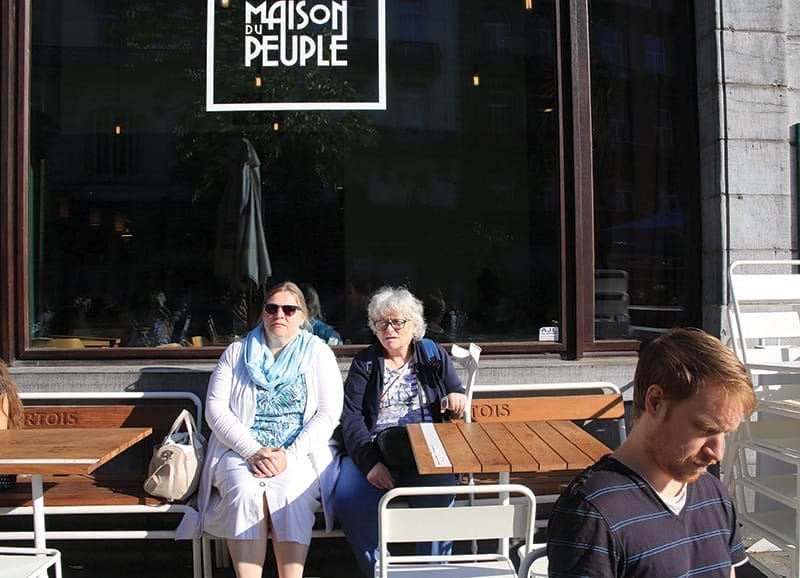
Geraldine and Véronique
“I asked, ‘Why why why didn’t you let me know, so I could have stopped him?’” said Geraldine, tears pouring down her face. Véronique wrapped her arm around Geraldine’s shoulders. Wiping her eyes, Geraldine said simply, “They want to let them go, but not come back.”
On 25th February 2015, Geraldine had a blinding headache. She feared it was a message that her son had died. She was right. Two days earlier, Anis, 20, nom de guerre Abu Ibrahim al-Belgiki, had been killed with a single shot to the head at Deir ez-Zur in Syria. According to the meticulous work of Guy Van Vlierden and Pieter Van Ostaeyen, researchers who have been chronicling the movements of Belgian jihadis, he died fighting for Isis in the elite Katibat al-Battar militia.
“Mothers of terrorists”
While Véronique, Saliha and Geraldine initially came together to give each other emotional support, they soon realized that their experiences gave them invaluable insight into the road to extremism and resolved to share them. They are uniquely positioned in the fight.
“I speak [to young people] about my son and when I say he is dead, the room goes silent,” said Geraldine. “They haven’t even considered that kids die over there. We tell them the real story – not the fiction of Isis.” Culturally, too, the group is vital. “In Muslim culture, the role of the mother is most important. When they speak about their experiences, it is much more profound. That is why they have to tell their stories,” declared Fatima.
But it has been hard to tell those stories. “We have a project to go to schools,” Geraldine explained, “but the schools worry they would be stigmatised – that it would associate the school with those leaving for jihad.” Parents, too, are frightened. “They believe it can never happen to them,” Véronique observed. “But they see us and in the mirror, they can see themselves.” The federal government also resists constructive engagement. “They don’t trust us ‘mothers of terrorists’,” Véronique noted darkly.
Local communities, however, have been far more receptive. Worried about the problems they see on their streets, they have welcomed the women’s efforts to help. In July, the local government of Brussels’s Molenbeek district gave the mothers a room to work from, which they intend to open as a drop-in advice centre. They are having some success in training community workers to recognise early signs of radicalisation and will shortly launch a freephone number for concerned parents to call for help and advice.
They haven’t even considered that kids die over there. We tell them the real story – not the fiction of Isis”
Vilvoorde, meanwhile, has responded robustly, implementing a community wide de-radicalisation programme. The problem is urgent. Recruiters are not in short supply. “At a bus stop in Brussels the other day, a young woman [near me] struck up a conversation with someone else,” Geraldine tells me. The woman started sounding out her potential mark. “Before long I heard her telling this other person how she’d organised travel to Syria for her husband.” In late May, in Vilvoorde alone, the local government was working on 30 cases of concern.
Meanwhile, several Western governments have cracked down on fleeing fighters, making travel to Syria more difficult. This has succeeded in “somewhat” slowing the outbound flow to Syria, according to Van Ostaeyen. This is not necessarily a good thing. “Repressive legislation is counterproductive in a big way,” he says. “More dangerous than those wanting to go to Isis are those [who are] thwarted.” But the mothers will not give up. It is hard work, pushing against the current without resources, but they are determined.
In mid-August, Véronique finally heard from her son. Sami and his wife had just had a new baby, a boy named Mohammed. For Véronique, the news is bittersweet. She has become a grandmother for a second time, to children she will most probably never see and who in the event of her son’s death will remain in Syria in the care of “brothers”, possibly part of the first generation born and raised in the Islamic State.
Postscript
According to Saliha, in the wake of the Paris attacks of 13th November 2015 a series of schools which had previously declined to speak with the mothers are now actively seeking their advice.
On 18th March 2016, Salah Abdeslam – a suspect in the Paris terror attacks of 13th November 2015 – was arrested after a raid on his Molenbeek address. On 22nd March, Brussels’ Zaventem airport and Maelbeek metro station were targeted by coordinated bombings in which 35 people died. We cover the Brussels bombings in issue #22 of Delayed Gratification.
Slow Journalism in your inbox, plus infographics, offers and more: sign up for the free DG newsletter. Sign me up
Thanks for signing up.
